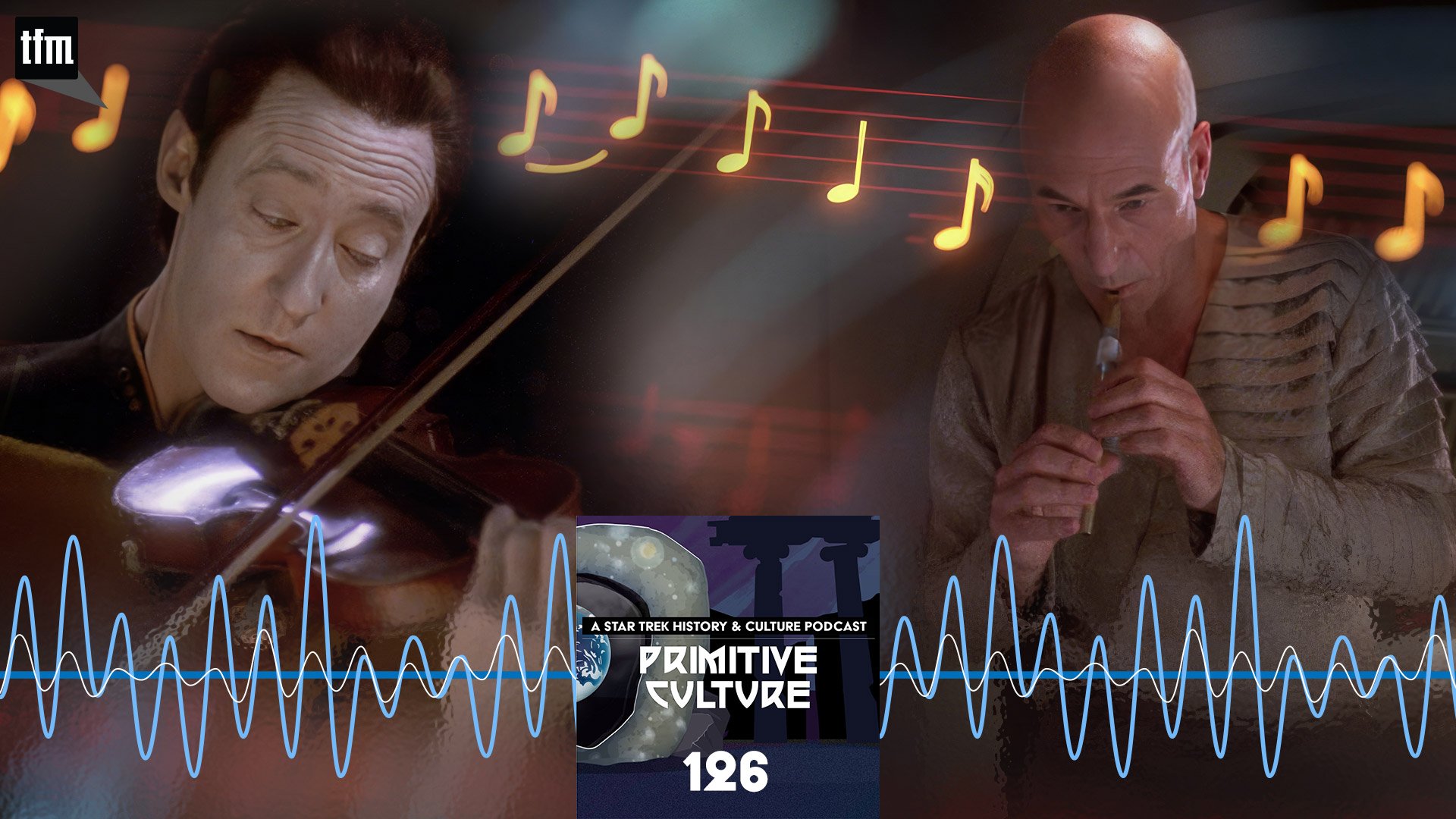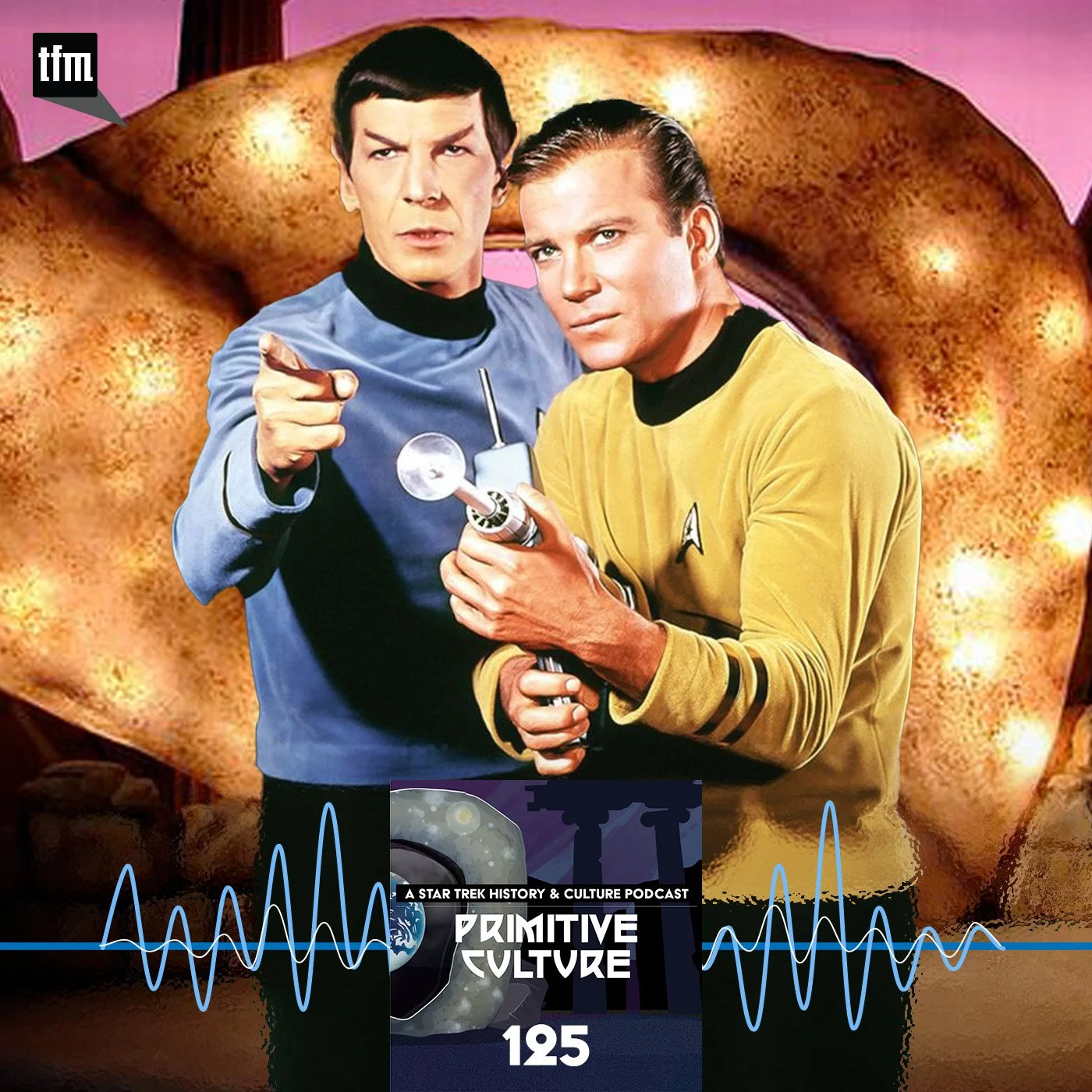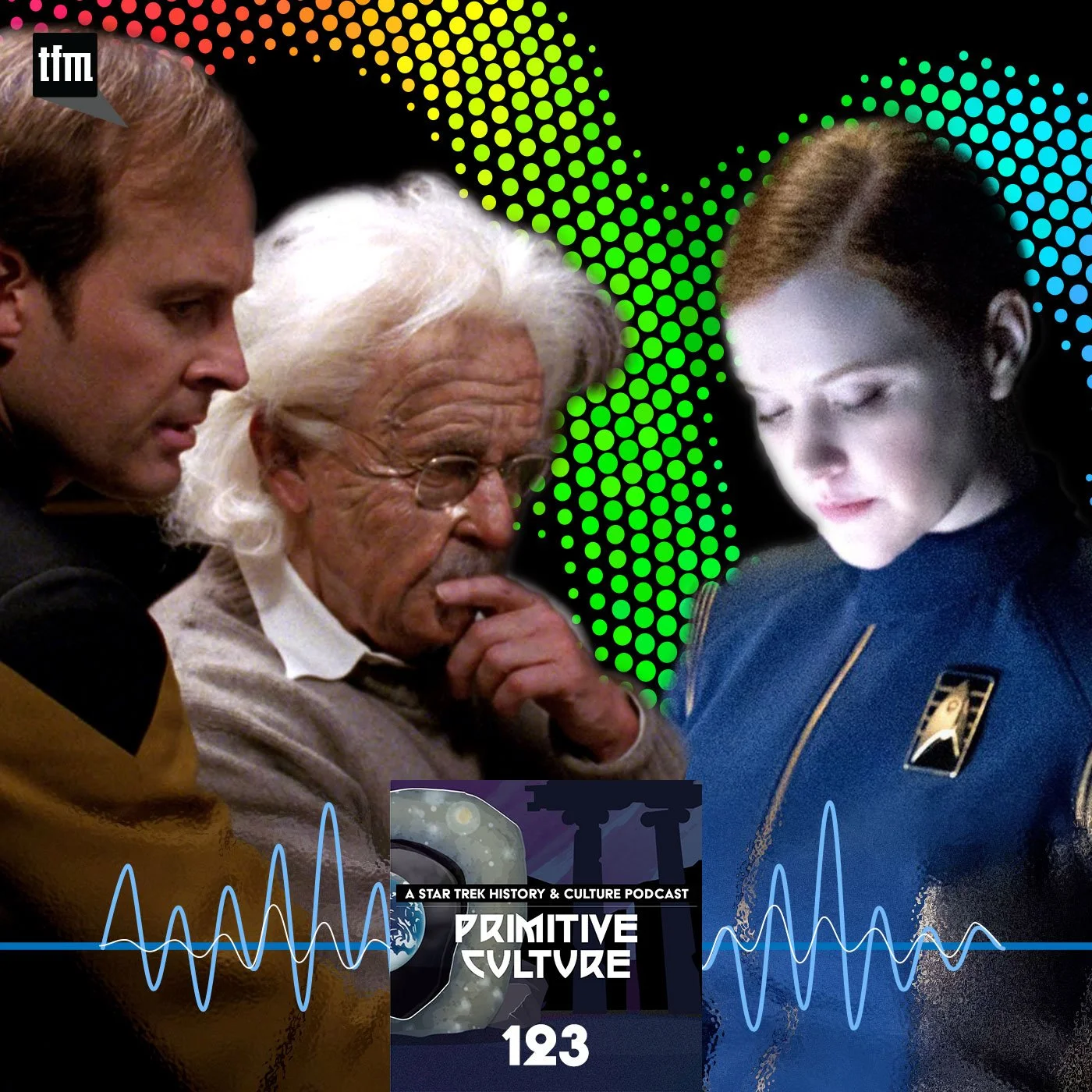Music in Star Trek

Running Time: 59 minutes 30 seconds
Download / RSS / Send us a message / Discuss the show / Support Trek.fm
From Alexander Courage’s “bright galactic beguine” in The Original Series to Jeff Russo’s churning, Game of Thrones-style theme for Discovery, the music of Star Trek has always embodied the spirit of its time, as much as it looks to the future. Rick Berman famously sacked composer Ron Jones from The Next Generation because he felt his scores drew too much attention to themselves. In his mind, the underscore should be a kind of wallpaper, as unobtrusive as the soft pastel carpet stuck to the walls of the Enterprise-D. And yet the music of Star Trek—in particular the film scores by Jerry Goldsmith, James Horner, and others—has become an iconic part of the franchise’s cultural legacy, and of popular culture more broadly.
In this episode of Primitive Culture, host Duncan Barrett is joined by musicologists Jessica Getman and Evan Ware. Together with Brooke McCorkle Okazaki, they are the editors of the recently published Music in Star Trek: Sound, Utopia, and the Future. Here, they share some key observations from the 15 essays collected in their book, as well as consider the future of the Star Trek franchise—in music and beyond.
Chapters
Intro (00:00:00)
Blue Skies Thinking (00:09:15)
Beware the Borg Fugue (00:17:00)
Losing Faith … (00:24:45)
Course Correction (00:37:20)
Scoring the Sausage (00:49:50)
Hosts
Duncan Barrett
Guests
Jessica Getman and Evan Ware
Production
Duncan Barrett (Editor and Producer) C Bryan Jones (Executive Producer) Matthew Rushing (Executive Producer)
Music in Star Trek. We take a look at how Trek’s underscore has developed over more than half a century with musicologists Jessica Getman and Evan Ware.
Half a Decade of Primitive Culture. In this special episode, recorded earlier this year, we look back on the podcast and how Star Trek has changed in the time we’ve been podcasting.
Cardassian war crimes and The Man in the Glass Booth. We look at the DS9 episode “Duet” alongside The Man in the Glass Booth, as well as the presentation of war crimes in Star Trek more generally.
Autistic representation in Star Trek. We look at Trek’s history of (accidental) representation of neurodiversity, considering characters such as Data, Seven of Nine, Reginald Barclay, and Sylvia Tilly.
Star Trek’s Double Troubles. We look doppelgängers and duplicates from The Original Series through Lower Decks.
Trans Representation in Star Trek. We look at how Star Trek accidentally addressed the topic in TNG and DS9.
The Alien franchise and Star Trek: Strange New Worlds. We take a look at “All Those Who Wander” alongside the Alien franchise.
How Star Trek’s leaders reflect our own. We talk about the parallels between Star Trek’s leaders and our own, and ask whether Star Trek has finally managed to marry the military ethos of Starfleet with the business of intergalactic politics.
Star Trek’s backdoor pilots. We take a look at the original attempt to establish a spinoff series, “Assignment: Earth,” as well as more recent examples including Strange New Worlds and more potential offspring of Discovery.
What if it wasn’t the Vulcans who made first contact? In honor of First Contact Day, we imagine how things might have played out for humanity had it been the Klingons, Romulans, or others passing by on April 5, 2063.










